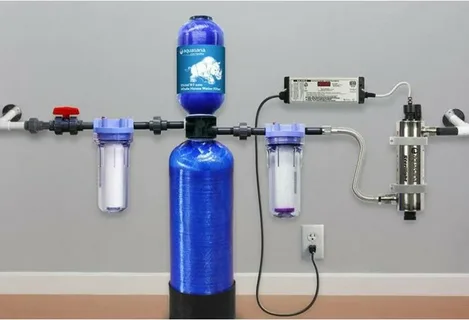Hard water can wreak havoc on your plumbing system. Minerals from hard water stain bathroom tiles, toilets, and sink bowls, and over time, mineral deposits can block your pipes. Other contaminants in your water may irritate your skin when used for showering and may impact your water’s taste. Installing a whole house water filtration system cleans your water from point or dispersed sources, eliminating problems caused by contaminants. Here are tips to help you choose the right filtration system for your house.
Test Your Water
The best filter for your house depends on the type of pollutants in your water. Water filter companies can send in professionals to conduct tests to determine which contaminants are present in your water. If you source the water from municipal services, you might need a whole house water filtration system that removes sediments, minerals, and chlorine. A sediment filter removes dirt, dust, and other debris in your water. You can remove chlorine from water using an activated carbon filter. House water sources connected to a private water well can function with filters combined with water softening systems. This can help remove mineral deposits that harden the water and sediment.
Filter Size for Your Home
When choosing a house water filter, find one with a size that can accommodate your home’s water supply demands. Whole house water filter sizes are determined by flow rate measured in gallons per minute (GPM) and filter port size. A professional can check water flow ratings on fixtures like toilets, faucets, and showers to determine a GPM rating. It is easy to determine the right filter size for your home if you have a storage tank. If you use a direct water supply source like a well, check your water meter on a laundry day to estimate the amount of water you use daily and choose a water filter size based on that estimate. One inch is an ideal filter port size for a residential home, but larger houses may need a water filter with a one-and-a-half-inch port.
Filtration System Lifespan
The lifespan of a water filter depends on how much water (in gallons) its cartridges can filter before needing replacement. Before needing to be changed out, high-quality filter cartridges may filter 100,000 to 150,000 gallons of water. A water filter professional can advise you on the frequency your filter cartridge needs replacement based on your water quality and how much water is used. You could also ask them about the lifespan of different water filtration systems. A sudden decrease in water pressure can also tell you when you need a filter replacement.
National Sanitation Foundation Certification
While National Sanitation Foundation (NSF) certification is not compulsory for residential water filtration systems, it could be a valuable assurance of the product’s quality. The NSF works with independent organizations to test whether a water filtration system meets the standards for water treatment instruments. They evaluate water filtration systems based on material safety, structural integrity, and contaminant removal efficacy. When looking at water filters, check for the NSF mark along the product as proof of certification. Your supplier can also provide certification details for their products.
Install Whole House Water Filtration
A whole house water filtration system might be a necessary addition to your home plumbing system if you have water contamination concerns. A point of entry (POE) water filter cleans out pollutants in your water from various sources, allowing you to get clean water from all your water appliances. You can install a water system that removes sediments, mineral deposits, and chemical contaminants from your water, making it safe to use in your home. Consult a water filtration system supplier to recommend an optimal water filter type and size for your home.
For more helpful insights and guides on home improvement, plumbing, and sustainable living, you can explore expert articles on platforms like Avtub, where diverse and informative content is shared daily.

